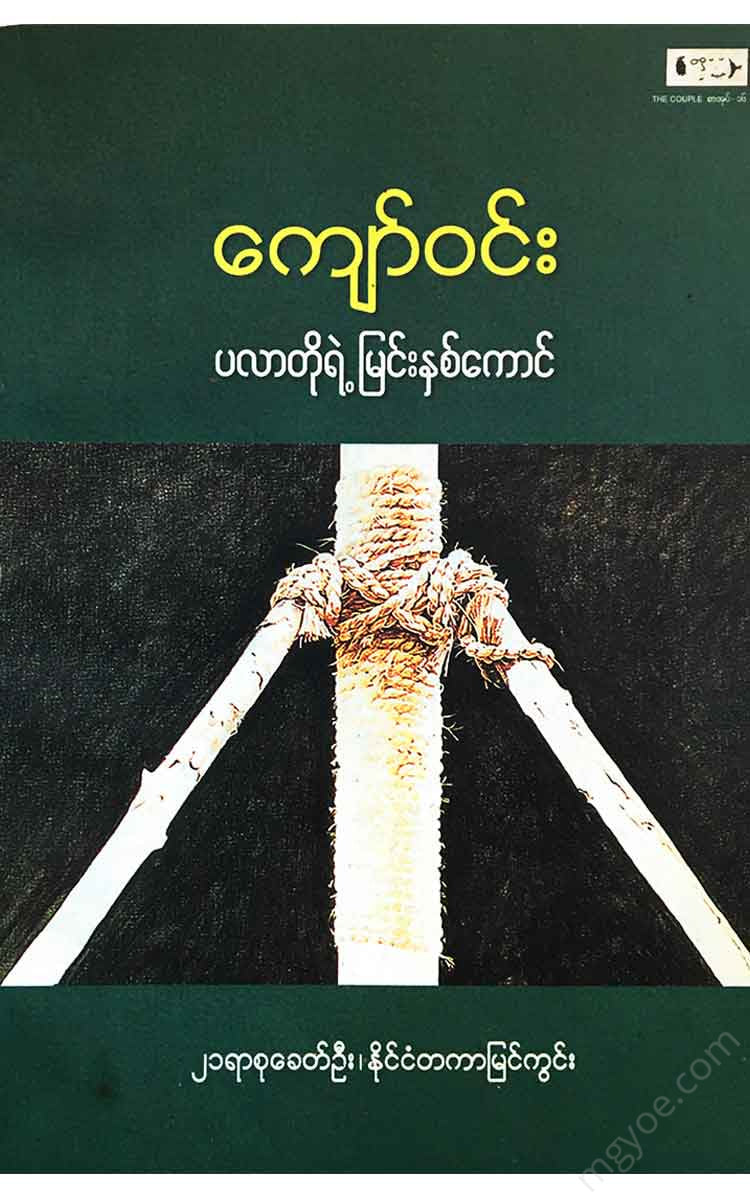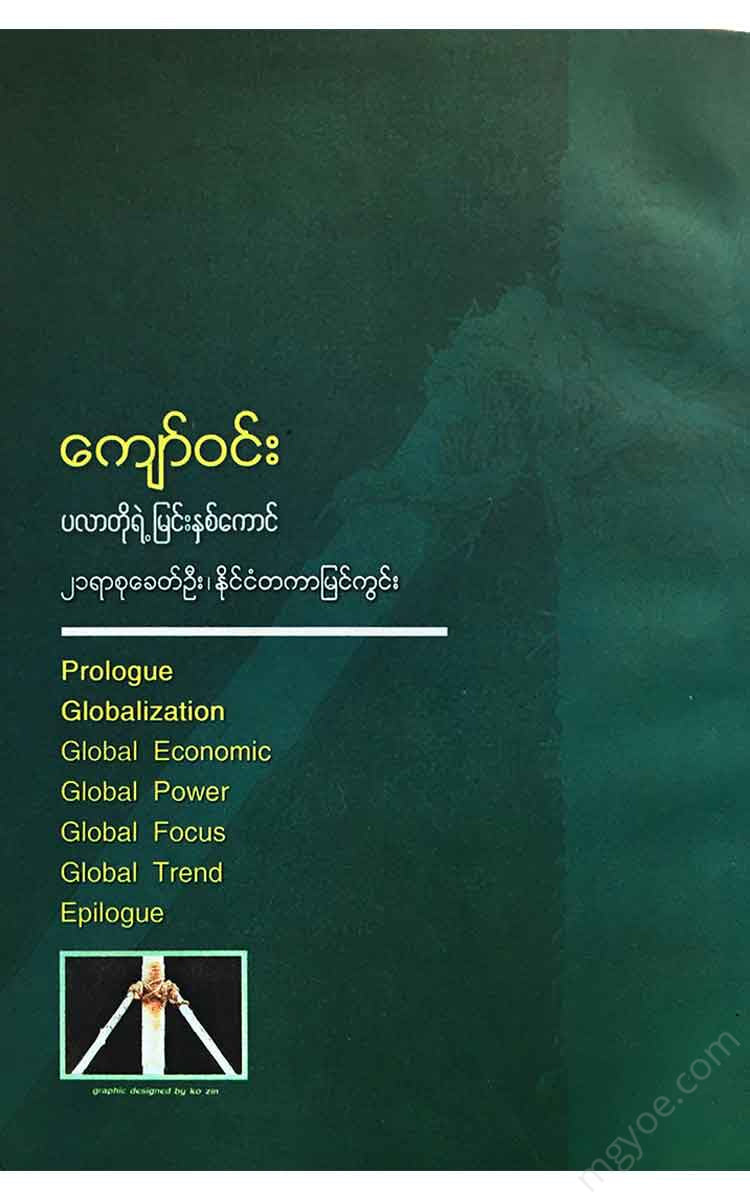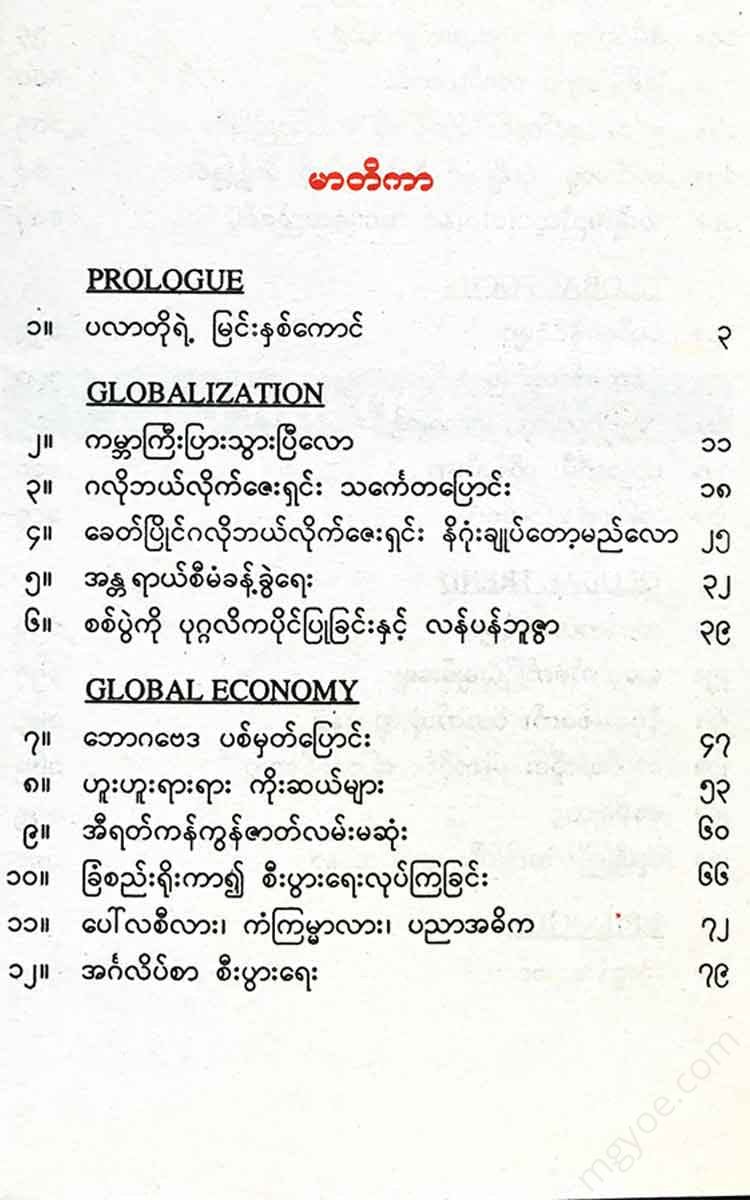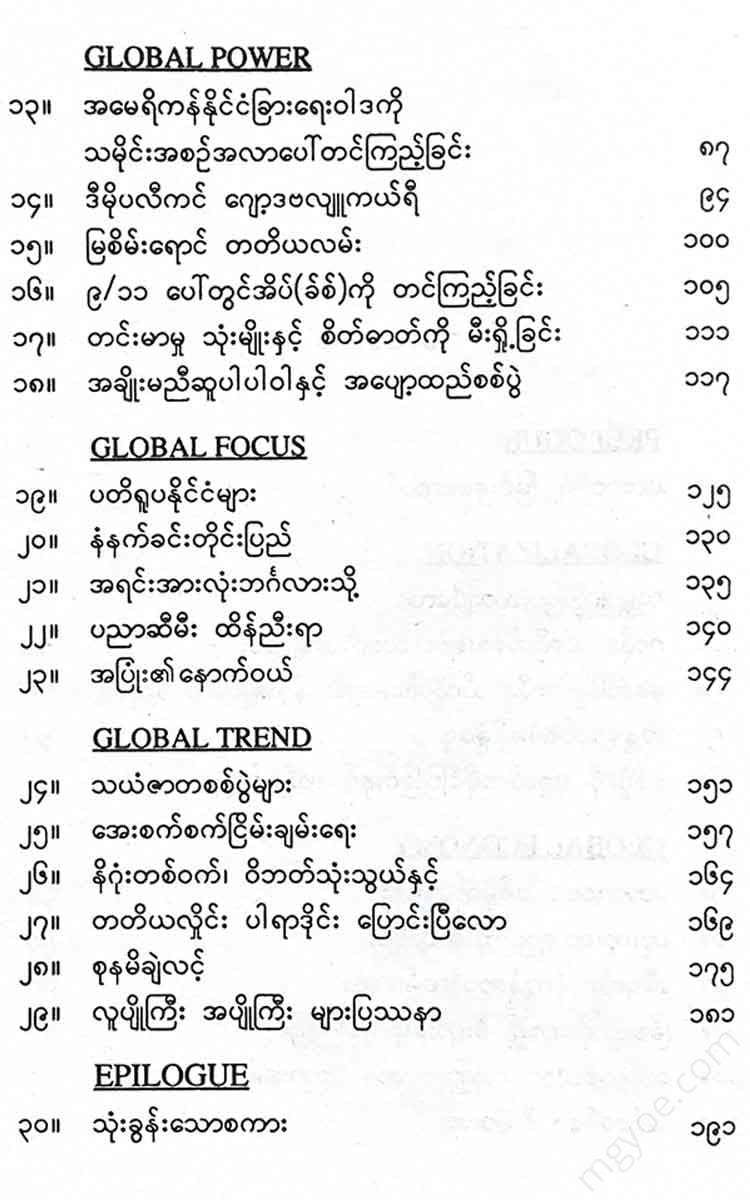Other Websites
Kyaw Win - Plato's Two Horses
Kyaw Win - Plato's Two Horses
Couldn't load pickup availability
Opening statement
I was intrigued by the strange headline on the front page of the International Herald Tribune (IHT). It read: “Plato’s chariot rolls in at the start of 2005.”
It is about two international conferences held in January 2005: the American Economic Association meeting in Philadelphia and the International Relations Forum at Harvard University's John F. Kennedy School.
In the first days of the talks, they talked about “real” events, which I think are not very special. As usual, about the US budget deficit. About China. They looked at the Iraqi elections. In the later days, both meetings started to talk about a specific topic, which was interesting. Behind the economic and political trends, there was a chapter on the human soul. Here, I would like to quote a quote from the philosopher Plato.
Plato once compared the human soul to a chariot pulled by two horses. He said that the two horses were “reason” and “emotion.” If these two horses were in harmony, the chariot would move steadily, he said, but if they were not, there would be a lot of work to do. These two dialogues are based on this metaphor and illustrate 2005. The chariot is the world. The horse of reason is economics, and the horse of emotion is political science. The difficulty is that the two horses are not in the same direction. They are pulling in opposite directions.
The result was that the carriage stopped moving forward and instead swayed in all directions. At this moment, the driver was cracking his whip. However, the tip of his whip did not hit any of the horses. It was just floating in the air.
Balance
As we know, traditional economics has no place for the soul. It rarely takes into account “emotions.” All economic activities, such as how much to produce and how much to consume, how much to save and how much to invest, are measured solely by “rationality.”
They are often calculated. This is what all schools of thought, from classical economics to the present day, have in common. They are built on the answers that come from reason. This is what some have criticized as the greatest weakness of traditional economics.
Because most of the people who actually participate in the market are not economists. They tend to follow emotions rather than facts and reason. This is a point that “behaviourists” have focused on. They use “humans” as test subjects and ask them to make decisions about economic behavior. At that moment, their brain waves are immediately recorded on a computer screen. Their findings are interesting and significant.
Even economists have agreed to take into account the role of emotion. Thus, a new discipline called “neuroeconomics” has emerged. It is still in its infancy, and current economics is still based on mere logic.
According to neuroeconomists, the human mind is sensitive to economic cycles.
It is said that the pendulum swings back and forth like a clock. In a “boom” there is “exuberance” and in a “recession” there is “panic”. Even though there is “boom”, the exuberance does not stop. Similarly, even though there is a recession, the panic does not stop. Thus, the adjective “irrational” is often used in front of both situations. This is a human instinct. Economic decisions are made with this instinct, and it is judged that emotions are the main factor. Economics ignores this fact (or does not pay attention to it), and therefore theory and practice are at odds. This is what is meant by the metaphor of economics as a “rational horse”.
Power
Indeed, the general tendency of the human mind is self-interest. This is agreed upon by both economics and political science. They no longer see it as a sin, but as a “reality.” Yet the two disciplines differ in their definitions of “self-interest.” Economics sees it as “utility.” To put it simply, it is measured in terms of money. Simple and clear. Political science is not so simple and clear. It is often described as “passion to power.” It is more dynamic, driven by “strong will.”
More specifically, “power” can be divided into two categories: “tangible” and “intangible.” Those who are accustomed to tangible power tend to think of “the status quo” and want to maintain this situation. They are close to realists. From Machiavelli to Henry Kissinger. Immaterial power advocates, while often proclaiming that they will overthrow the status quo, are not willing to sacrifice their “identity” for it. Their symbol of power is an “identity cult.” In other words, they are close to idealists. From Thomas More to Karl Marx to Woodrow Wilson.
Thus, political science tends to revolve around emotional (or rather, emotional) activity rather than rationality. This is also possible because it knows the nature of the public. It is possible to capture people's desire to believe, to worship. This is why religion and politics are often mixed. In the last presidential election, George W. Bush won because he could show the highest level of emotional activity rather than policy.
It will be because. In other words, it will be a game of symbols. Because of this nature of politics, it will be likened to "emotional horse".
Who is the horse-drawn carriage driver?
The most important (and perhaps the most important) of the metaphors mentioned at the beginning of the article is
Who will be the horseman? Some answer, the United Nations. Many are not convinced. They criticize it as too shallow. The problem is deeper than that, they argue. They answer, human knowledge, which is responsible for the care of the human soul.
The charioteer in the metaphor is the one who whips the air, and human knowledge itself seems to be missing the mark. Despite the hype of the age of knowledge, knowledge itself is not capable of controlling two horses. This is the biggest challenge of the 21st century.
It will likely be the most chronic problem in human history that has yet to be solved.
Here is the famous pre-war journalist U Chit Maung's statement, "The world is about to end."
It reminded me of the long caption “World.” It was a long article that analyzed the international situation on the eve of World War II. I wondered if the world had been riding a two-horse train on the edge of a precipice of destruction since the time of Plato.
The Reporter, No. (162),







